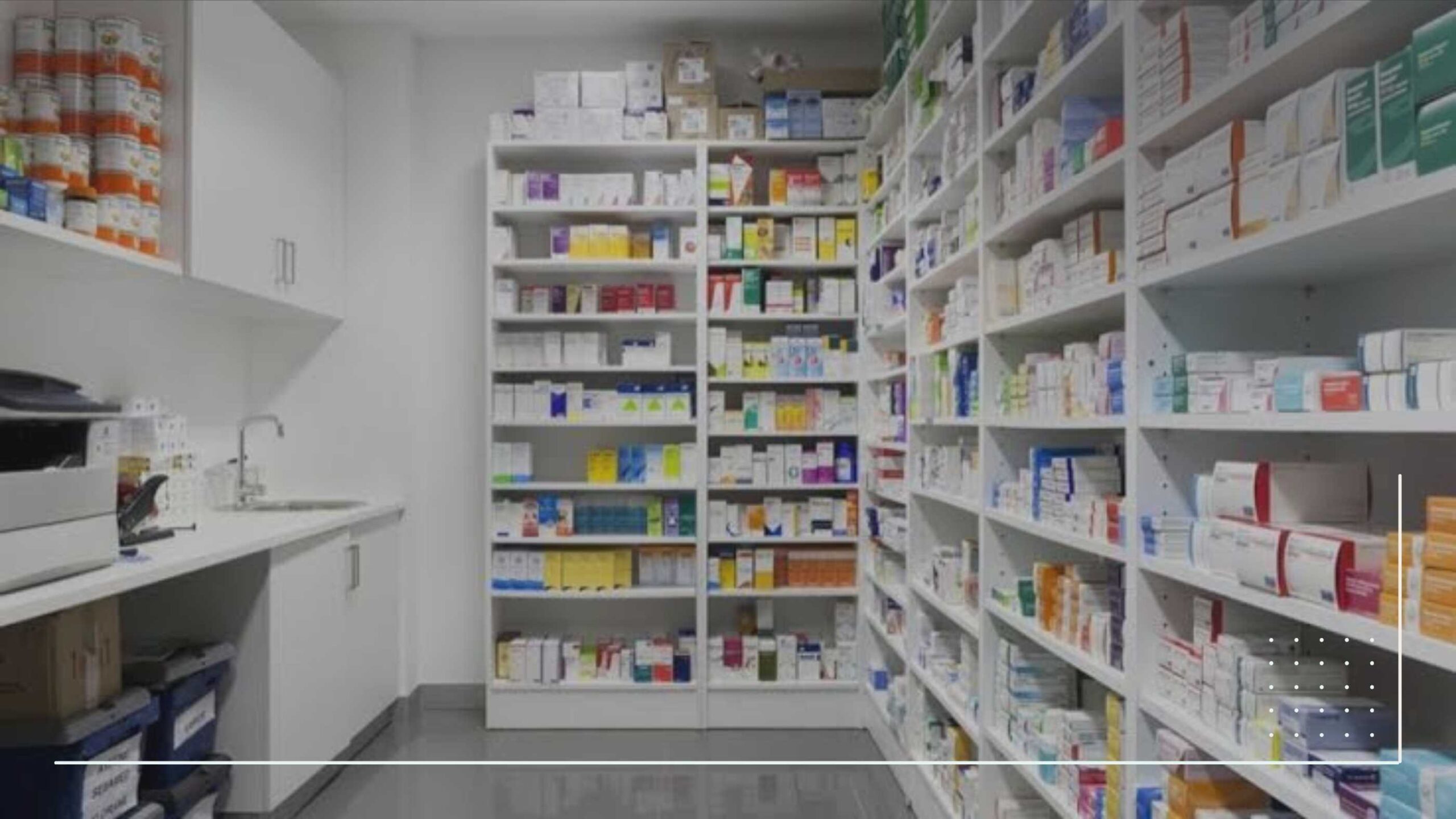Start a Pharmacy Business in Nigeria: 4-Step Guide

by Counseal Team
Updated January 23, 2024

Have you ever thought about starting a pharmacy business in Nigeria?
You might be surprised to find out that it’s not just a great idea, but a highly profitable and rewarding venture too.
The pharmacy business is a vital component of the healthcare industry. In Nigeria, this sector is booming, offering entrepreneurs a unique opportunity to meet the health needs of the local population while also generating substantial income.
Don’t just take our word for it – the numbers speak for themselves. The annual return on Investment is as high as 65%.
Now, you might be wondering, “How do I start a pharmacy business in Nigeria?” Don’t worry; we’ve got you covered.
First:
- Quick Takes
- 1. Explore the Different Types of Pharmacy Business You can Start in Nigeria
- 2. Learn the Challenges and Risks of Starting a Pharmacy Business in Nigeria
- 3. Understand the Best Practices and Tips for Running a Successful Pharmacy Business in Nigeria
- 4. Market and Promote your Pharmacy Business in Nigeria
- Frequently Asked Questions
Quick Takes
How much does it cost to start this business?
Starting a pharmacy business in Nigeria requires a lot of planning, capital, and compliance with the regulatory authorities. The estimated cost of opening a standard and modern pharmacy store in Nigeria ranges from 8 to 10 million Naira (roughly 9 to 11 thousand Dollars. This includes the following expenses:
- Registration of the business name with the Corporate Affairs Commission (CAC): at least ₦50,000 Naira ($55)
- Renting a suitable shop in a strategic location: ₦300,000 to ₦2,000,000 ($330 to $2,195) depending on the city, size, and quality of the shop
- Stocking the shop with drugs and other pharmaceutical supplies: variable depending on the quantity and quality of the products, but could be in the range of millions of Naira
- Obtaining a licence from the Pharmacists Council of Nigeria (PCN): ₦100,000 ($110)
- Purchasing computer and other electronic devices: ₦150,000 to ₦400,000 ($165 to $439)depending on the brand and number of devices
- Other miscellaneous costs such as painting, renovation, furniture, staff salary, etc.: variable
- These are the approximate costs of setting up a pharmacy business in Nigeria as of 2024. However, these costs may change over time due to inflation, market fluctuations, and other factors. Therefore, it is advisable to conduct a thorough market research and feasibility study before venturing into this business.
How much can you make per month?
The income of a pharmacy business in Nigeria depends on many factors, such as the location, size, customer base, product range, and operational costs of the store.
The average net profit margin for a pharmacy store is around 40 percent, and the annual return on investment (ROI) is over 65 percent. However, these figures may vary depending on the market conditions and the level of competition.
Based on these estimates, a pharmacy store that makes ₦10 million ($10,976) in annual sales could earn ₦4 million ($4,390) in net profit, which translates to about ₦333,333 ($365.90) per month.
However, this is just a rough calculation and does not account for the specific circumstances of each store. Therefore, it is advisable to conduct a detailed financial analysis before starting a pharmacy business in Nigeria.
What is the minimum required to start this business?
The minimum requirements to start a pharmacy business in Nigeria are as follows:
- A degree in pharmacy from a recognized institution or a partnership with a qualified professional
- A licence from the Pharmacists Council of Nigeria (PCN) and other permits and certifications
- A registered business name with the Corporate Affairs Commission (CAC)
- A suitable shop in a strategic location
- A stock of drugs and other pharmaceutical supplies
- A computer and other electronic devices
- A staff of at least a cashier, a cleaner, and an accountant
These are the basic requirements for setting up a pharmacy business in Nigeria. However, you may also need to consider other factors such as market research, financial analysis, advertisement, and delivery services.
What are the best states to start this business?
The best states to start a pharmacy business in Nigeria are those that have a high population, a good healthcare system, and a low level of competition from other pharmacies. Some of the states that meet these criteria are:
- Lagos: Lagos is the most populous and commercial state in Nigeria, with over 20 million people and a vibrant economy. Lagos has a high demand for quality healthcare services and products, as well as a large number of hospitals and clinics that require pharmaceutical supplies. Lagos also has a good road network and transportation system, which makes it easy to distribute and deliver drugs across the state.
- Abuja: Abuja is the capital city and the administrative centre of Nigeria, with over 3 million people and a high standard of living. Abuja has a lot of government officials, diplomats, expatriates, and wealthy individuals who can afford to pay for quality medications and health products. Abuja also has a relatively low level of competition from other pharmacies, as most of them are concentrated in the central business district.
- Kano: Kano is the second most populous state in Nigeria, with over 13 million people and a strong industrial base. Kano has a large market for pharmaceutical products, especially for the treatment of common diseases such as malaria, typhoid, and tuberculosis. Kano also has a good network of wholesalers and distributors, who can supply drugs at affordable prices and in bulk quantities.
- Rivers: Rivers is one of the oil-rich states in Nigeria, with over 5 million people and a high per capita income. Rivers has a lot of oil workers, businessmen, and professionals who need quality healthcare services and products. Rivers also has a good infrastructure and security, which makes it conducive for running a pharmacy business.
These are some of the best states to start a pharmacy business in Nigeria, based on the available information from various sources.
However, you may also want to consider other factors such as the availability of suitable shops, the cost of rent, the proximity to your target customers, and the legal requirements of each state.
What are the known examples of this business?
Some of the known examples of pharmacy business in Nigeria are:
- Ara Pharmacy Store: This is a pharmacy store that is located in the heart of Oyo state. It offers a wide range of pharmaceutical products and services to the local community.
- Zerofy Pharmacy: This is an existing pharmacy store that operates in Lagos, Nigeria. It is known for its quality products, excellent customer service, and affordable prices. It also has an online platform that allows customers to order and pay for drugs online.
- Pharmaplus Nigeria Limited: This is a leading pharmacy chain that has branches in several states in Nigeria, such as Abuja, Kano, Rivers, and Oyo. It offers a variety of pharmaceutical products, including prescription drugs, over-the-counter drugs, cosmetics, and medical equipment. It also provides consultancy and training services to other pharmacy businesses.
Taking the First Steps
Starting any business can be daunting, let alone a pharmacy. But with the right guidance and determination, you can do it! Over the years, we’ve gathered invaluable insights and experiences that can help you navigate the path to starting a successful pharmacy business.
Remember, every journey begins with a single step. With the right mindset, resources, and a clear roadmap, you can turn your dream of owning a pharmacy into reality.
Ready to get started?
Let us delve into the nitty-gritty of starting a pharmacy business in Nigeria.
1. Explore the Different Types of Pharmacy Business You can Start in Nigeria

As an entrepreneur eyeing the healthcare sector, you might be intrigued by the opportunities in the pharmacy business. And why not? It’s a field brimming with potential. So, let’s dive in and explore the types of pharmacy businesses you can start in Nigeria.
1. Community Pharmacy: Your Neighbourhood Health Partner
A community pharmacy is more than just a drug-dispensing centre. It’s a place where the public can receive health advice and buy over-the-counter medications. It’s about building trust and relationships with your local community.
Here’s what’s great about a community pharmacy:
- Convenience: Your customers can easily pop in for health advice or medication without needing to travel far.
- Accessibility: Being in the heart of the community, you’re easily reachable for everyone.
- Trust: Over time, you’ll build a trustworthy brand that your community relies on for their healthcare needs.
Businesses like HealthPlus and MedPlus are shining examples of successful community pharmacies in Nigeria. They’ve grown exponentially by focusing on quality products and customer service. So, how can you start a community pharmacy in Nigeria?
- Choose a strategic location. Footfall matters. Aim for busy neighbourhoods or shopping centres.
- Register your business. Legalities first, always.
- Hire qualified staff. Your team needs to be knowledgeable and customer-friendly.
- Stock quality products. Your reputation depends on it.
2. Hospital Pharmacy: Specialized Health Service Provider
In contrast to a community pharmacy, a hospital pharmacy caters specifically to hospital patients and staff. It’s about providing clinical services and supplying vital medicines within a hospital setting.
Consider these advantages:
- Specialisation: Your focus is on a specific group of customers – hospital patients and staff.
- Collaboration: You work closely with doctors and nurses, ensuring the best care for patients.
- Impact: You play a crucial role in patient recovery and health management.
Hospitals like Lagos University Teaching Hospital and National Hospital Abuja have reputable pharmacy departments. If you’re wondering how to start a hospital pharmacy, here are some steps:
- Obtain a licence. Acquiring the necessary permits is crucial.
- Partner with a hospital. You’ll need to establish a strong relationship with a hospital.
- Set up a pharmacy department. This involves procurement, storage, and dispensing of drugs.
- Follow standards and protocols. You need to adhere to regulations strictly.
3. Wholesale Pharmacy: The Bulk Drug Supplier
A wholesale pharmacy operates on a larger scale, purchasing and selling medicines in large quantities to other pharmacies, hospitals, or institutions.
Here’s why a wholesale pharmacy is a good idea:
- Economy: Buying in bulk often leads to cost savings.
- Diversity: You can deal in a wide range of medicines and healthcare products.
- Scalability: The potential for growth and expansion is significant.
Businesses like Emzor Pharmaceuticals and Orange Drugs Limited have successfully established themselves in the wholesale pharmacy sector in Nigeria. If this avenue interests you, here’s how you can kickstart your wholesale pharmacy business:
- Find a warehouse. You will need substantial space to store your inventory.
- Secure a distributorship. Partnering with drug manufacturers can ensure a steady supply.
- Establish a network. Build relationships with pharmacies, hospitals, and institutions to whom you’ll supply.
- Comply with regulations. Adherence to drug laws and regulations is critical.
Remember, starting a pharmacy business isn’t just about dispensing drugs. It’s about providing a service that’s vital to the health and wellbeing of your community. It’s about building trust, establishing strong relationships, and making a difference. And with these insights, you’re one step closer to making an informed decision about your pharmacy venture in Nigeria. Buckle up, the journey is just beginning.
2. Learn the Challenges and Risks of Starting a Pharmacy Business in Nigeria

The Capital Crunch
Starting a pharmacy business in Nigeria is like embarking on an enthralling journey. But, it’s a journey that requires substantial capital. Even before you open your doors, you’re looking at significant investment in infrastructure, equipment, and inventory. Not to mention, the cost of hiring skilled personnel.
Let’s talk numbers. From my experience, you’d need an estimated ₦10 million to ₦15 million to start a standard pharmacy business in Nigeria. Quite a hefty sum, isn’t it?
But don’t let this discourage you! There are plenty of ways to raise capital. You can apply for loans or search for grants and subsidies. Maybe consider seeking investors or business partners. Or, the old-fashioned way – saving and reinvesting your profits. Remember, the goal is to get your dream pharmacy up and running.
Surviving the Competition
The pharmacy market in Nigeria is like a bustling marketplace – highly competitive and, frankly, a bit crowded. You have got the big players like HealthPlus and MedPlus, dominating with their strategic locations and wide range of products.
So, how do you thrive amidst this competition? It’s about offering something unique, that edge that sets you apart. Excellent customer service, unique products, or a loyalty reward system could be your ticket to building a faithful customer base. It’s all about creating and delivering value in a different way.
Navigating the Regulation Maze
Pharmacy business in Nigeria is like a tightly choreographed dance, governed by stringent regulation and supervision. You’ve got the Pharmacy Act, the Pharmacists Council of Nigeria (PCN), and the National Agency for Food and Drug Administration and Control (NAFDAC) calling the shots.
These agencies are like the referees in a football game – they set the rules, and you have to play by them. This means obtaining the necessary permits and licences, adhering to ethical and professional codes, and keeping accurate records and reports.
Navigating this maze might seem daunting, but remember, every business has its challenges. With a bit of patience and the right guidance, you’ll find your way.
3. Understand the Best Practices and Tips for Running a Successful Pharmacy Business in Nigeria

There’s no sugarcoating it – starting a pharmacy business in Nigeria is a challenging task. But with the right information, a solid plan, and a little bit of resilience, you can navigate these challenges and risks and carve out a successful business for yourself. So, are you ready to take the leap?
Conducting Market Research: A Must for Every Pharmacy Business in Nigeria
Ever wondered why some businesses thrive while others struggle to stay afloat? It’s simple: successful businesses understand their market. And this understanding comes from robust market research.
Market research is all about getting to know your customers, competitors, and the latest trends. It’s about finding out what works and what doesn’t in your specific business environment. It’s like taking a snapshot of the business landscape and using that information to make informed decisions.
You can conduct market research through various methods such as surveys, interviews, focus groups, and online platforms. For instance, you can use surveys to gather information about customers’ needs and preferences. You can also use online platforms to track and analyse the behaviour of your competitors and customers.
But, how do you use this information to improve your business?
Here are a few ways:
- Identify your unique selling proposition (USP): What sets your pharmacy apart from others? Is it your customer service, product range, or location? Once you’ve identified your USP, you can use it as a selling point to attract and retain customers.
- Segment your market: Not all customers are the same. Some may prefer to buy medicines online, while others may prefer to visit a brick-and-mortar pharmacy. By segmenting your market, you can tailor your marketing efforts to suit the needs and preferences of each segment.
- Position your brand: How do you want your customers to perceive your pharmacy? As a trusted health partner? Or as a convenient one-stop-shop for all their health needs? By positioning your brand correctly, you can create a positive image in the minds of your customers.
- Adapt to changing needs and preferences: The needs and preferences of customers change over time. By staying on top of these changes, you can adapt your business strategy and stay ahead of the competition.
Crafting a Business Plan: Your Roadmap to Success
A business plan is like a roadmap. It shows you where you’re going, how you’re going to get there, and what resources you’ll need along the way. It outlines your goals, strategies, and resources, giving you a clear direction and helping you stay focused.
Your business plan should include an executive summary, company description, products and services, market analysis, marketing and sales plan, financial plan, and appendix. Each of these sections provides valuable information about your pharmacy business and how you plan to run it.
Writing a business plan may seem daunting, but it doesn’t have to be. You can use a template or follow a format to make the process easier. Just remember to be realistic and update your plan regularly to reflect changes in the business environment.
Managing Inventory and Cash Flow: Key to a Thriving Pharmacy Business
Inventory and cash flow management are crucial for the smooth operation and profitability of your pharmacy business. If not managed properly, they can lead to stock-outs, expiry, theft, wastage, and debt.
To manage your inventory effectively, consider using a software system. This will help you keep track of what’s in stock, what needs to be ordered, and when. You can also implement a stock control policy to prevent stock-outs and wastage.
Cash flow management, on the other hand, involves keeping track of your income and expenses. It’s about ensuring that you have enough cash to cover your operational costs and other financial obligations. Negotiating with suppliers and customers can also help improve your cash flow.
In conclusion, running a successful pharmacy business in Nigeria involves conducting market research, crafting a business plan, and managing inventory and cash flow.
By following these best practices, you can set your pharmacy up for success and make a positive impact on the health of your community.
4. Market and Promote your Pharmacy Business in Nigeria

Embrace the Digital World: Online Marketing
In the era of digitalisation, online marketing is a game-changer. It’s not just affordable; it’s also an incredibly effective way to reach a wider audience and attract potential customers to your pharmacy business.
Firstly, having a well-designed website is a must. It’s your digital storefront, open 24/7, and it’s vital to invest time and resources into making it user-friendly and informative.
Social media platforms such as Facebook, Instagram, and Twitter are also powerful tools for reaching out to your audience, offering them value, and building relationships.
Email newsletters, too, can keep your pharmacy top-of-mind for your customers, providing them with updates, discounts, and health tips.
Lastly, consider running online ads through platforms like Google Ads or Facebook Ads. With their advanced targeting options, you can reach potential customers that are likely to be interested in your pharmacy’s products or services.
To make the most of your online marketing, you need to optimise your efforts. This means using SEO keywords in your website content to rank higher in search engine results.
Engaging content is crucial too — it’s what attracts and retains your audience. Monitor your online marketing results to understand what’s working and what’s not, and always be open to customer feedback.
Traditional Yet Reliable: Offline Marketing
Offline marketing, while considered traditional, is still a reliable means to build and maintain customer relationships. It’s about connecting with people in the real world, and it can play a pivotal role in your pharmacy business’s marketing strategy.
Print media, radio, and TV are all channels through which you can reach a broad audience in Nigeria. Distributing flyers, brochures, or coupons in strategic locations can also attract potential customers.
Moreover, consider attending or hosting health-related events to network and increase your pharmacy’s visibility. Sponsoring or partnering with local organisations can also help to establish your pharmacy as a trusted community member.
Enhancing your offline marketing is all about standing out. A catchy slogan or logo can leave a lasting impression. Offering incentives, discounts, or freebies can attract more customers, and following up with them can build loyalty and encourage repeat visits.
Word-of-Mouth: The Original Influencer
Word-of-mouth marketing is as old as commerce itself, and it’s a powerful way to grow your pharmacy business. It’s about turning your customers into advocates for your brand, and it’s all based on trust.
Delivering quality products and services is the foundation of word-of-mouth marketing. When customers are satisfied, they’re likely to recommend your pharmacy to others.
Additionally, exceeding customer expectations can turn a one-time customer into a loyal one. It’s also important to solve customer problems promptly and efficiently, demonstrating that you value their business.
To leverage word-of-mouth marketing effectively, consider asking your best customers for referrals, testimonials, or reviews. Rewarding customers for such referrals can also encourage more of them. Fostering a sense of community around your pharmacy can also inspire customers to share their positive experiences with others.
In conclusion, marketing and promoting your pharmacy business in Nigeria requires a strategic mix of online, offline, and word-of-mouth marketing. By integrating these strategies and tailoring them to your specific needs and goals, you can attract, retain, and grow your customer base, ensuring the success and longevity of your pharmacy business.
The pharmacy business in Nigeria is a goldmine waiting to be tapped. However, like every other business, it requires strategic planning, hard work, and commitment to thrive. So, are you ready to roll up your sleeves and delve into the pharmacy business? Remember, at Counseal, we’re here to guide you every step of the way!
For more insights and resources on starting and growing a business in Nigeria, visit counseal.com. You’re one step away from becoming the next successful entrepreneur in Nigeria’s pharmacy sector!
Frequently Asked Questions
How do I choose a location for my pharmacy business in Nigeria?
- Choosing a location for your pharmacy business in Nigeria is one of the most important decisions you will make, as it will affect your visibility, accessibility, customer base, and profitability. You should consider the following factors when choosing a location:
- Demand: You should choose a location where there is a high demand for your products and services, such as areas with a large population, low access to health care, or high incidence of diseases.
- Competition: You should choose a location where there is low or moderate competition from other pharmacies, hospitals, or institutions, or where you can offer a competitive advantage, such as lower prices, better quality, or wider variety.
- Regulations: You should choose a location where you can comply with the relevant laws and regulations, such as zoning, licensing, and environmental requirements, and where you can obtain the necessary permits and approvals from the authorities.
- Costs: You should choose a location where you can afford the rent, utilities, taxes, and maintenance expenses, and where you can negotiate favourable terms and conditions with the landlord or owner.
How do I hire and train qualified staff for my pharmacy business in Nigeria?
- Hiring and training qualified staff for your pharmacy business in Nigeria is essential to ensure the smooth operation and quality of your business. You should consider the following steps when hiring and training staff:
- Determine your staffing needs: You should determine the number and type of staff you need for your pharmacy business, such as pharmacists, pharmacy technicians, sales assistants, accountants, or security guards, and the roles and responsibilities they will perform.
- Recruit and select candidates: You should recruit and select candidates who have the required qualifications, skills, experience, and attitude for your pharmacy business, and who share your vision and values. You can use various methods to recruit and select candidates, such as advertising, referrals, interviews, or tests.
- Train and orient staff: You should train and orient staff on the policies, procedures, and standards of your pharmacy business, and on the products and services you offer. You can use various methods to train and orient staff, such as manuals, videos, workshops, or mentoring.
Evaluate and motivate staff: You should evaluate and motivate staff on their performance, productivity, and customer service, and provide them with feedback, recognition, and rewards. You can use various methods to evaluate and motivate staff, such as appraisals, incentives, or bonuses.
How do I stock quality products for my pharmacy business in Nigeria?
Stocking quality products for your pharmacy business in Nigeria is crucial to ensure customer satisfaction and loyalty, and to comply with the regulations. You should consider the following tips when stocking quality products:
- Choose reliable suppliers: You should choose reliable suppliers who can provide you with quality products at reasonable prices, and who can deliver them on time and in good condition. You can use various criteria to choose reliable suppliers, such as reputation, accreditation, certification, or recommendation.
- Verify the authenticity of products: You should verify the authenticity of products before you buy or sell them, and check for any signs of tampering, damage, or expiry. You can use various methods to verify the authenticity of products, such as labels, seals, batch numbers, or barcodes.
- Store and handle products properly: You should store and handle products properly according to their specifications and requirements, and protect them from heat, light, humidity, or pests. You can use various equipment and materials to store and handle products properly, such as refrigerators, cabinets, shelves, or containers.
How do I set prices for my products and services in my pharmacy business in Nigeria?
- Setting prices for your products and services in your pharmacy business in Nigeria is important to balance your costs, profits, and competitiveness. You should consider the following factors when setting prices:
- Costs: You should consider the costs of running your pharmacy business, such as rent, utilities, salaries, taxes, inventory, and marketing, and calculate your break-even point and profit margin.
- Competition: You should consider the prices of your competitors, and compare them with your own prices, and decide whether you want to match, undercut, or exceed them, depending on your value proposition and target market.
- Customers: You should consider the willingness and ability of your customers to pay for your products and services, and their perception of your quality and value, and adjust your prices accordingly.
Regulations: You should consider the regulations and guidelines that govern the pricing of your products and services, such as the maximum retail price (MRP), the essential medicines list (EML), or the drug price control order (DPCO), and comply with them.
How do I attract and retain customers for my pharmacy business in Nigeria?
- Attracting and retaining customers for your pharmacy business in Nigeria is essential to generate sales and grow your business. You should consider the following strategies to attract and retain customers:
- Offer unique products or services: You should offer products or services that are different from or better than your competitors, such as products that are rare, exclusive, or customised, or services that are specialised, personalised, or value-added.
- Provide excellent customer service: You should provide customer service that is friendly, helpful, and responsive, and that meets or exceeds customer expectations, such as offering free delivery, easy returns, or discounts, or solving customer problems, or answering customer questions.
Build customer relationships: You should build customer relationships that are strong, lasting, and loyal, and that create a sense of trust and satisfaction, such as asking for feedback, sending thank-you notes, or rewarding loyal customers, or creating a sense of community, such as having a blog, newsletter, or forum.
How do I comply with the regulations and standards of the pharmacy business in Nigeria?
Complying with the regulations and standards of the pharmacy business in Nigeria is a legal and ethical obligation that will protect your business, customers, and reputation. You should consider the following steps to comply with the regulations and standards:
- Obtain the necessary permits and licences: You should obtain the necessary permits and licences from the relevant authorities, such as the Corporate Affairs Commission (CAC), the Pharmacists Council of Nigeria (PCN), and the National Agency for Food and Drug Administration and Control (NAFDAC), and display them in your premises.
- Follow the ethical and professional codes: You should follow the ethical and professional codes of conduct and practice of the pharmacy profession, such as the Code of Ethics for Pharmacists, the Code of Conduct for Pharmacy Technicians, and the Code of Practice for Community Pharmacy, and adhere to the principles of honesty, integrity, confidentiality, and accountability.
- Keep the records and reports: You should keep the records and reports of your pharmacy business, such as the inventory, sales, purchases, prescriptions, dispensing, and accounting records and reports, and submit them to the authorities as required.
How do I learn more about the pharmacy business in Nigeria?
Learning more about the pharmacy business in Nigeria is important to keep yourself updated and informed about the industry. You can learn more about the pharmacy business in Nigeria by:
- Taking online courses
- Reading online blogs
- Joining online forums




